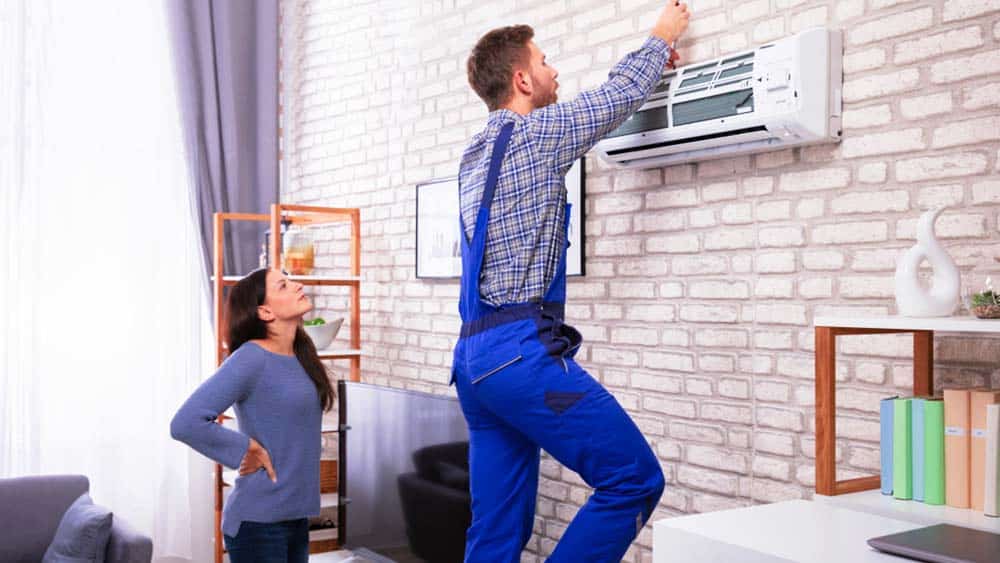
Key Takeaways
- HVAC maintenance is essential for ensuring your system operates efficiently and lasts longer.
- Regular HVAC maintenance includes tasks like cleaning filters, inspecting refrigerant levels, and checking the thermostat for proper functionality.
- Schedule professional inspection at least once a year for a comprehensive system checkup.
Homeownership is exciting, but it comes with considerable responsibility. You need to make sure your home functions well and everything is in check and running efficiently. HVAC maintenance is one such element that cannot be ignored. Your HVAC system alone is responsible for cooling during the hottest days and heating during the coldest nights. To maintain your ideal home temperature, your HVAC system must be well maintained and in top condition all year round.
In this blog, let’s explore the key steps to keep your AC in top shape, from routine inspections to simple DIY maintenance tips.
Why is HVAC Maintenance Important?

HVAC systems are an important aspect of any commercial or residential building. The primary purpose of the maintenance is to keep your system operating at top efficiency all season long with no surprise breakdowns. If your AC tune-up is long overdue, your unit can also show some unfavorable signs, which can be highly undesirable during the peak season.
Other than discomfort, this can also cause a substantial unnecessary expenditure. Regular maintenance ensures all AC components are in good condition to prevent any problems, and an efficient running system also helps to save money on air conditioning.
No matter how expensive your HVAC system is, its performance decreases over time. However, if your system is well managed, it can significantly help extend your AC unit’s life.
Let’s look into the checklist you need to maintain to keep your system in top condition always!
HVAC Maintenance Checklist
You can list and perform three types of maintenance tasks when needed. Let’s have a look!
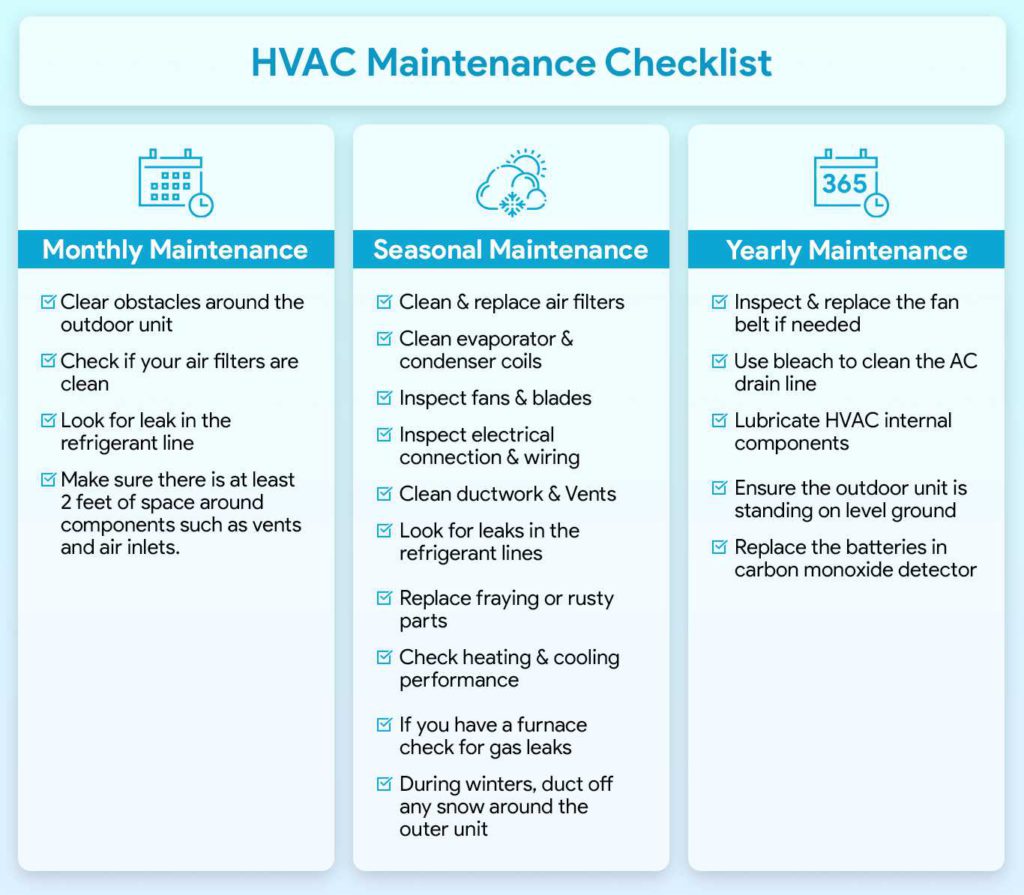
1. Routine or Monthly Checks for Your HVAC System
It is essential to conduct routine HVAC system maintenance. These are usually DIY jobs that are generally easy and may take a little of your time. Checking the following tasks to avoid any potential problems concerning your system:
- Look for debris, shrubs, leaves, or other blockages around your HVAC system’s outdoor unit. Keep the condenser fan exhaust as obstacle-free as possible.
- Make sure there are at least 2 feet of space around the indoor components of your HVAC system. These can be ducts, vents, or air inlets for portable or free-standing air conditioners. You want the indoor unit to get as much air as it possibly can without any hindrance.
- Check to see if your AC filters are clean. If not, they can be a load on your HVAC unit. Immediately clean or replace them.
Carry out an HVAC system inspection once a month to look out for refrigerant leaks. The refrigerant lines are typically made of copper and connect the outdoor unit to your AC’s indoor evaporator coil. The refrigerant absorbs the heat and provides cool air, and if your unit is low on refrigerant, it will run inefficiently, and your utility bills will skyrocket.
2. Seasonal HVAC Maintenance Checks
Seasonal heating and air conditioning maintenance ensures you enjoy the upcoming winter or summer season in peace!
Suppose your HVAC system is performing differently than it should. In that case, your desired temperature expectations may not be met, and your unit may also drain out more energy than it should. Here is a checklist to look into before the start of each season:
- Cleaning and replacing air filters.
- Clean evaporator coils and your AC’s condenser. Here’s a guide on AC coil cleaning.
- Check heating/cooling elements.
- Inspect fans and blades for proper operation.
- Check all the electrical connections & wiring.
- Clean the ductwork and vents.
- Check the refrigerant.
- Replace fraying or rusty parts.
- During the colder months, clear any accumulated snow from around the outdoor unit of your HVAC system.
- For a furnace, check for gas leaks.
Related: The Ultimate Spring HVAC Maintenance Checklist, A Comprehensive Summer Home Maintenance Checklist
3. Annual Maintenance Checks for Your HVAC System
These heavy-duty checks must be done at the end of the year. Although they may seem simple enough, it is a good idea to have them done by a qualified HVAC professional to avoid potential damage to your HVAC system.
- Ensure lubrication of your HVAC internal components.
- Check the fan belt and replace it if it’s not running efficiently or is in bad condition.
- Use bleach to clean the AC condensation drain line.
- Check the outdoor AC unit and make sure it is standing on level ground.
This is the ultimate schedule that you should follow to keep your system running efficiently. HVAC preventative maintenance ensures you keep your repair costs low and your HVAC system running in the best condition, ensuring high efficiency.
HVAC Maintenance Guide
Here is an essential guide with tips to help you maintain your HVAC system around the year!
1. Visual Inspection of the System

Sometimes, you can identify major HVAC issues simply by observing them with your own eyes. A careful visual inspection can often reveal problems before they become more serious and costly to repair.
Things to check during visual inspection:
- Check the working of your thermostat. Replace the batteries in case of a battery-operated device.
- Look around the outdoor and indoor units of your AC to look for any signs of damage.
- Make sure all the registers and vents are open.
- Inspect the condensate system for proper drainage. Obvious indicators of a problem can be water leaks, discoloration of the area around the AC, debris in the fan, mold or fungus growth, and dirt accumulation. A simple DIY AC cleaning process can usually solve these problems.
2. Install a Smart Thermostat
In addition to cleaning tasks, HVAC maintenance includes running your unit only when required and reducing energy consumption when you are away or sleeping. A smart thermostat can help you automate your home climate.
Smart Thermostat for Central HVAC
A central AC system consumes a significant amount of energy, but one effective way to manage this is by investing in a smart thermostat for central HVAC. These devices provide you with full control of your AC system through your smartphone, allowing you to make adjustments from the palm of your hand.
By leveraging technology, you can enhance convenience in your life while saving energy. Smart thermostats enable you to set schedules, allowing your HVAC system to make automatic adjustments and ensuring it isn’t running unnecessarily. Additionally, you can use geofencing to maintain the ideal temperature whenever needed and enjoy many other advanced features that smart thermostats offer.
Related: The Ultimate Guide to Smart Thermostat Savings With Cielo
Equip your HVAC system with smart features and achieve the perfect balance between comfort & savings.
Learn more
Use Smart Thermostats for Mini-Split
If you have room air conditioners, such as mini-splits, windows, or portable ACs, equipping them with smart technology can help you gain a higher degree of control over your home’s comfort. Smart mini-split thermostats, such as Cielo Breez Max, allow you to control your AC using a phone. In addition, they equip it with numerous next-gen features, allowing you to maintain your ideal room temperature while helping your AC run efficiently.
Related: Smart AC Benefits & Features: Here Is Why We Love Smart ACs and You Should Too
Your best choice to make any mini-split, window,
or portable AC smart. Enhance your comfort and savings.
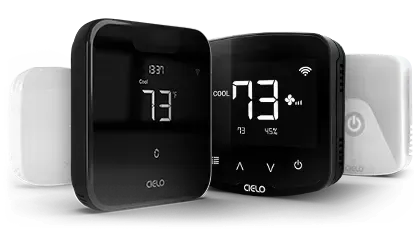
3. Clean the Air Filters

After prolonged usage, the air filters can get clogged with dirt and dust. In addition, if you have pets at home, even more particles like fur and dander can block the filters. The result? Reduced efficiency and cooling from your air conditioner.
AC filter cleaning is essential to HVAC maintenance, as it ensures healthy indoor air quality. An unmaintained system can be a source of dust, mold, and bacteria.
Clean the filters every 2 weeks and replace them every 3-4 months, less if you have pets at home. What’s more, if you are using a smart AC controller, it will help you notify when to change your AC filter! When replacing filters, you should also consider the MERV rating. Filters between 7 and 13 ratings provide good filtration ability.
4. Clean the Area Around Your Indoor AC Unit
Keeping the area where your indoor unit is placed clean is highly important. This maintenance task can help your AC work better.
If there are storage boxes or any other clutter around it, it’s best to remove them. When you have stuff around the unit, there are more chances of dust settling there and making its way inside. This can affect your system’s efficiency. Plus, it reduces the air circulation in the area, which is also bad for your HVAC’s health. Clutter can also make it difficult to perform maintenance tasks.
5. Clear the Area Around Your Outdoor Unit
Make sure that there is at least two feet of clear area around your outdoor AC unit. The area needs to be clear of leaves, pollen, twigs, etc. Moreover, do not let your lawn mower discharge grass clippings onto the outer unit of your AC; otherwise, it will affect your system’s regular functioning. You can make a creative covering for your AC outdoor unit to prevent dirt from gathering around your HVAC unit. In case you have plants nearby by, keep them trimmed two feet from all sides for proper HVAC airflow.
6. Keep Your Outdoor Unit Clean

Dust and debris settle on filters and collect on important HVAC systems, such as the blower, condensing unit, and other moving parts. A thin layer of dust does not cause much harm, but debris can cause severe damage to your HVAC system.
Get your HVAC system checked by a professional who will carefully clean the accumulated foreign objects. This would help to prevent permanent corrosive damage to the internal systems of the condenser.
7. Check the Working of Your Thermostat
If your thermostat is not working, it needs to be inspected for proper functioning. It can malfunction due to a glitch or battery-related issues.
If your thermostat is not performing its job like it should, try resetting it. It can help solve connection or programming problems. Here’s how you can reset your thermostat to get rid of glitches.
Sometimes, your thermostat can’t read your home temperature accurately, which can affect your home climate. In this scenario, thermostat calibration can help. Your device can lose calibration due to dirt buildup or sudden loss of power in case of power outages.
8. Keep Track of Your Energy Usage
Monitoring your energy usage can help you discover any issues early on. You can use a smart thermostat to track your usage history. If you notice high electricity bills without any change in your HVAC usage, it can signal some problems with your unit. Call your heating/cooling company and schedule a service visit.
9. Keep Condensation Drain Clear
When your air conditioner runs at full tilt, it also extracts moisture from the air. That moisture then accumulates on the evaporator coil, from where it drips through the condensate drain. If this drain is blocked due to mold, dirt, or dust, the water can leak all over the indoor unit and even drip down your walls, creating stains.
Related: Why is Your Indoor AC Unit Leaking Water? – 8 Common Causes & How You Can Fix Them
10. Moving Parts – Lubricate Them!
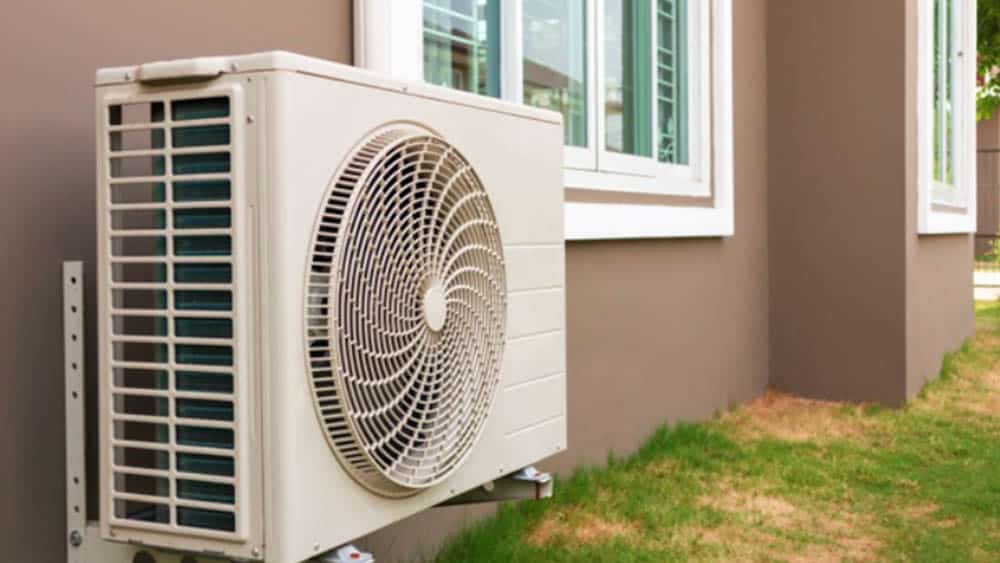
Every HVAC system has moving parts that need to be lubricated to minimize friction. The lubrication process helps the components run smoothly and minimizes the resulting wear and tear. HVAC professionals remove the debris from moving parts and use the required lubricant to keep friction at a minimum. The lubrication process should be repeated often to save your system from any permanent damage.
11. Refrigerant Levels – Keep Them in Check!
Air conditioners need to have enough refrigerant to cool the air efficiently. If the refrigerant is not enough, the compressor will not run at total capacity, causing your air conditioner to work hard to achieve the desired temperature and, in most cases, not cool altogether.
This can be a potentially serious problem; you will be better off calling an HVAC professional. An HVAC refrigerant leak causes your air conditioner to operate at maximum power for a longer duration, causing significant damage. Signs that you have a refrigerant leak are:
- AC runs longer than usual
- Warm or room-temperature air is coming out of the vents
- No cooling is achieved
- High electricity bills with low AC usage
You cannot check the refrigerant on your own, as it is a poisonous gas; a professional will help you check refrigerant levels and recharge them if needed.
12. Monitor Carbon Monoxide Detectors
It is crucial to properly maintain your carbon monoxide detector to ensure it is functioning correctly and can alert you if dangerous levels of carbon monoxide are detected. The first step in maintaining your detector is to test it regularly. Also, be sure to replace the batteries every six months. Also, clean the detector by gently dusting it with a soft brush or cloth.
13. Inspect the Exhaust for Central HVAC Systems
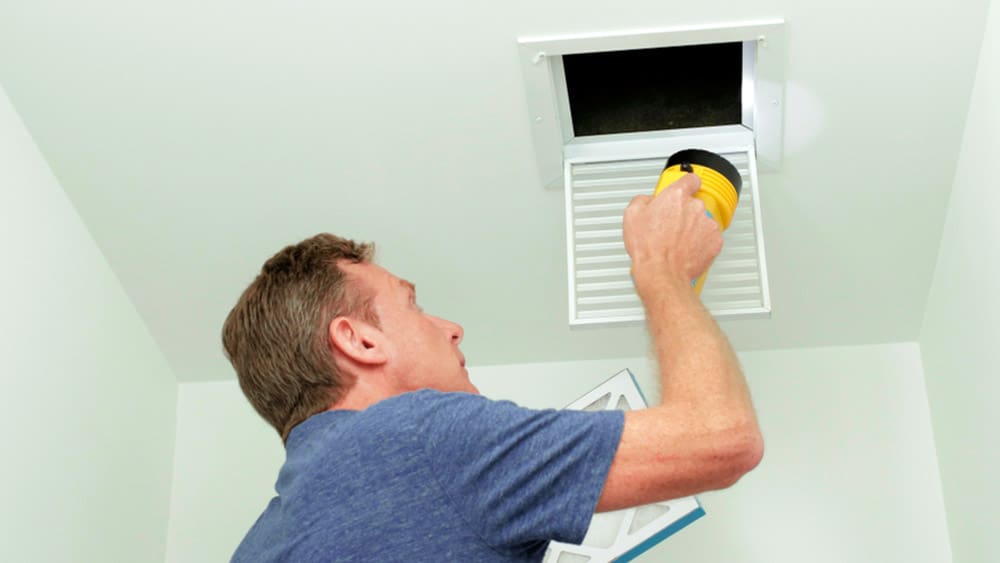
In ducted systems, clogged exhaust outlets lead to a dangerous buildup of mold and algae, jeopardizing your safety and air quality. A technician needs to clear out the furnace exhaust from time to time so that the air flows smoothly out of the vents. Moreover, soot and debris can also accumulate and prevent the smooth outflow of gases, reducing the HVAC’s efficiency.
14. Inspect Fuel Lines
Fuel lines supply gas to your air conditioner’s furnace. Leaking fuel can be a fire hazard, and soot can clog fuel lines, affecting the system’s efficiency.
Regular HVAC maintenance will ensure that all traces of clogs are removed and leaking fuel lines are inspected before the issue gets out of hand.
15. Check the Electrical Connections
Regularly check the electrical connections and wires of your ducted HVAC system. If they are loose, they can become sources of electrical sparks and short circuits, which can be dangerous. Over time, they can then completely come off and prevent the proper functioning of your HVAC system. Get an HVAC technician to check the connection, as they can be a significant cause of concern.
16. Hiring an HVAC Technician
You can handle most of the standard and easy HVAC maintenance tasks, but let’s get to the facts – HVAC systems are complex machines. You might not be able to identify some deeper issues. These checks need to be done by an expert for the proper functioning of your system.
Ideally, you should get a professional HVAC inspection twice a year, preferably at the start of the heating and cooling seasons, to keep it running for an extended period.
Here is a breakdown of what professional servicing entails:
- Cleaning evaporator and condenser coils.
- Check for refrigerant leakage and if your unit requires a recharge.
- Screws tightening.
- Lubricating moving components
- Inspect the drain pan and drain line for blockage. If there is a clog, a professional will do a thorough cleaning.
- Checking blowing motor functionality.
- Check for thermostat calibration.
- Inspecting the gas pressure, burner combustion, and heat exchanger.
17. Replace Your HVAC System
The average lifespan of your HVAC system is between 10 and 15 years. Proper HVAC maintenance can keep it running efficiently for a longer time. However, at some point after it has crossed the decade mark, your system will start to break down, needing frequent repairs. In this scenario, it’s better to replace your AC timely so you are not left in the middle of a hot or cold day without an HVAC unit.
Here are some signs that indicate your HVAC system is nearing the end of its life:
- You have noticed a sudden increase in your bills.
- Your unit is blowing warm air in cool mode.
- You hear weird AC noises coming from your unit.
- The AC compressor isn’t working. Check these top causes of AC compressor failure & how to avoid them.
How Much Does HVAC Maintenance Cost?
The annual cost for HVAC maintenance usually ranges from $75 to $200, with the average homeowner spending around $100. This fee generally covers basic services such as inspecting the system, cleaning components, and replacing filters. However, if your unit requires more extensive tune-ups or repairs, additional costs will apply. These extra services can range from $50 to $150 per hour for a technician, depending on the complexity of the work and the region you live in.
HVAC Maintenance Is the Way Forward
A properly functioning heating/cooling unit ensures you do not have to spend a fortune on significant maintenance tasks all year. Instead, keep on top of your HVAC system maintenance and solve a problem before it pokes its head so that you can live comfortably throughout the year with complete peace of mind.
If you haven’t had your system checked in a long time, schedule an HVAC maintenance check now and save significantly on AC costs.
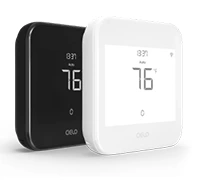
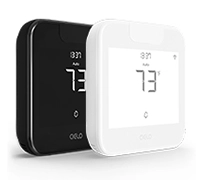
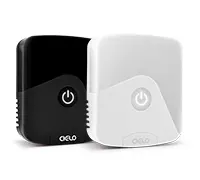
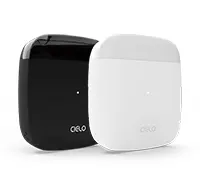
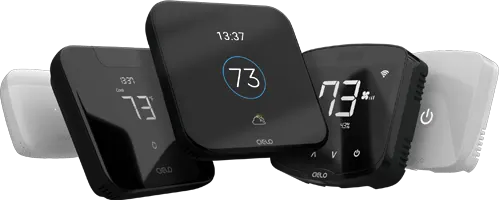

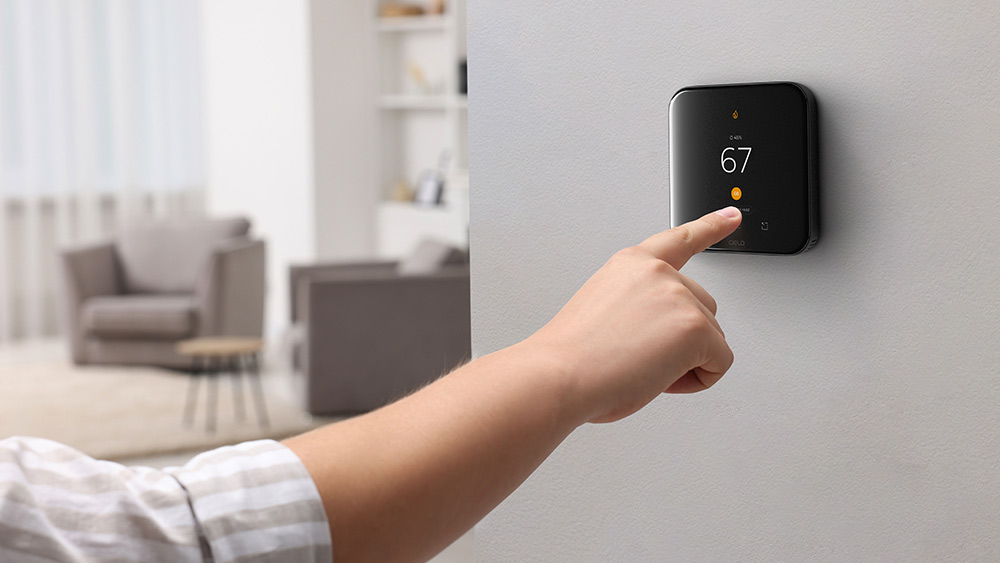
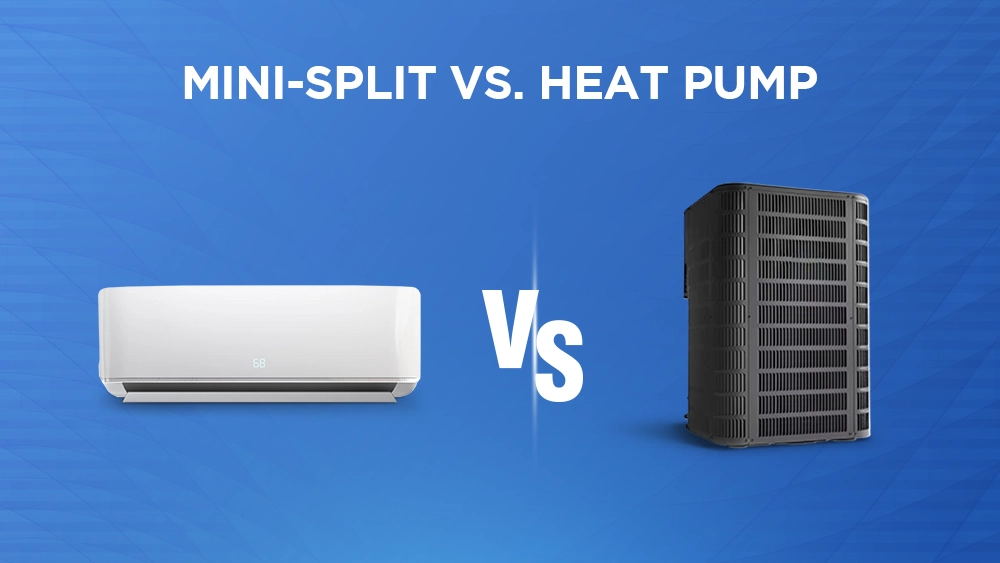

10 Comments. Leave new
HVAC systems provide essential comfort and air quality control, making them indispensable in both residential and commercial spaces.
HVAC maintenance runs are often best performed after a season ends and right before the next season starts
Do the repair company’s License and insurance affect the cost of repair?
The truth is, your air conditioner requires regular care to maintain its performance throughout. Therefore, you shouldn’t put off scheduling your AC maintenance longer to ensure it runs well.
EnergyStar recommends replacing your AC unit every 10 to 15 years. If you have an eight-year-old or older air conditioning system, it may not be worth the cost to repair it unless the repair is an easy fix, like a worn fan belt or a clogged condenser unit.
Keep up the great work! Thank you so much for sharing a great Information.
I like it when you said that proper maintenance might help you protect your system more. This is true!
My ac is leaking water and I think it might be related to dirty air filters.
My friend has been wondering how to make sure that her AC is in shape for this summer. I’ll share this advice with her so that she can start looking around for a technician to check over her system.
I didn’t know that fuel lines can become clogged with soot and affect the system’s efficiency. I will make sure to contact an expert and get the unit checked.